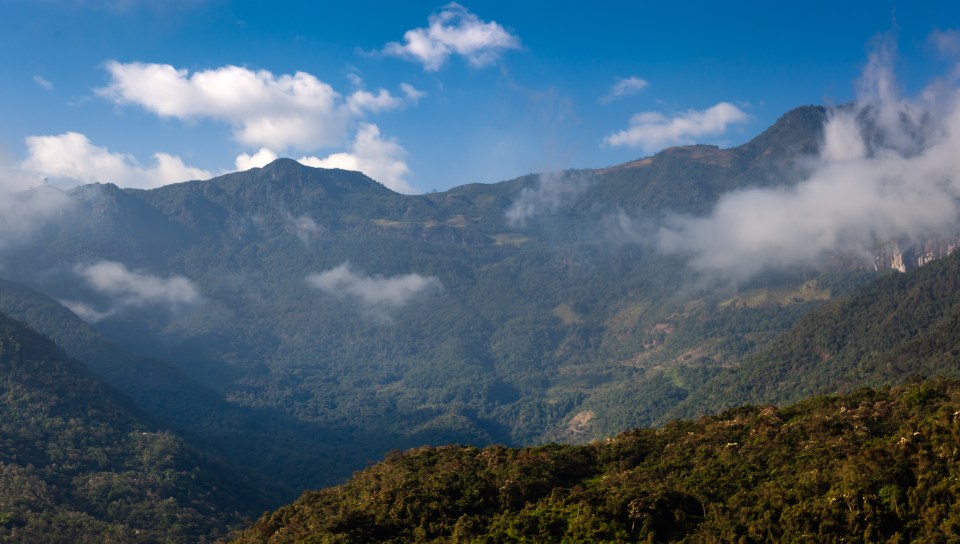The coffee brand taking a stand against domestic violence, one cup at a time
Violence against women continues to be a major issue, regardless of location, ethnicity or status.
Organizations like Sisters’ Story Coffee are attempting to make a difference.
In 2021, the World Health Organization (WHO) declared violence against women — specifically domestic violence — a major public health problem.
The WHO estimated 30 per cent of women worldwide have been subject to physical or sexual violence in their lifetime.
For a group of female coffee farmers employed by Sisters’ Story Coffee, solidarity is key to ending violence.
Who is Sisters’ Story Coffee?

Sisters’ Story Coffee is a part of Café Femenino, a certified Fairtrade and organic brand owned by Planet Bean Coffee. Café Femenino is a worker’s cooperative that provides direct compensation, resources and opportunity to women farmers around the globe. The goal is to create positive change in at-risk communities, on their own terms.
Sisters’ Story Coffee was born in Peru, where gender-based violence is a “significant issue” according to Human Rights Watch. Female residents in the Andean mountain side have a 70 per cent chance of being victims of gender-based violence. This is according to the Sisters’ story website.
“[These Indigenous women] thought their experience of physical and sexual violence was unique to them,” said Bill Barrett. He is the president of Sumac Community Workers’ Co-operative, which owns Planet Bean.
The Peruvian women insisted any company roasting their coffee should also support women in their home community. This is an attempt to show “female solidarity across borders,” said Barrett.
When you buy Sisters’ Story Coffee, you can donate to a women’s shelter or sexual assault centre of your choice. Currently, there are almost 50 Canadian charities to choose from.
Helping at home
The Women’s Crisis Services of Waterloo Region (WCSWR) is one of the charities available for selection. WCSWR has two women’s shelters: Anselma House in Kitchener and Haven House in Cambridge. WCSWR offers 90 beds for women and children leaving domestic abuse situations.
Jennifer Hutton, CEO of WCSWR said the partnership with Sisters’ Story Coffee is an “ideal opportunity.”
Donations allow WCSWR to offer meaningful programming to their community, including therapy, nutrition services and children’s activities.
“We’re fortunate to get government funding and we require government funding to run our services,” said Hutton. She said many services, including unique programming like music therapy, require additional funding. This funding, Hutton said, usually comes from the local community.
Hutton said when community members use the shelters, it is usually at a point of crisis.
“Everybody has unique needs, and they have unique circumstances,” she said. “We really try to offer a menu of services so that people can find what fits best for them.”
“With this Sister’s Story partnership, we could actually receive funding from them every quarter, depending on sales,” she said. “So that ongoing, stable, additional funding adds to our programming.”
Barrett said that is the point. “What you want to do is to have economic activity that’s ongoing, as opposed to just the one-off,” he said.
Lisa Schincariol McMurtry, Sisters’ Story Coffee’s community liaison, said women’s shelters and social service centres “really need sustainable funding.”
McMurty said this funding is especially necessary due to the COVID-19 pandemic. Public health restrictions have halted numerous fundraising opportunities. Statistics Canada also reported an increase of domestic violence during the pandemic.
“Coffee is something you have to bring in from abroad,” said McMurty. “You can’t grow it locally, but you can put some of that money back into your local community.”
Human rights and the environment

Sisters’ Story Coffee is dedicated to ecological sustainability.
“We have to recognize that every act we do has an ecological impact,” said Barrett.
“Most mainstream coffee is not grown in ecologically sensitive ways,” he said. “People don’t probably realize that the coffee they’re drinking every day is tied to real economic devastation.”
All coffee cultivation done by Planet Bean, as a Fairtrade organization, is ecologically sustainable and restorative.
Barrett said it’s difficult to advocate for peace and justice for human beings when it’s not extended to the environment. “There’s inconsistency there,” he said.
Making a difference
Julie Francoeur, the CEO of Fairtrade Canada, purchased coffee from the Sisters’ Story Coffee website. She decided to donate to a shelter near her in Montreal.
Francoeur said she enjoyed Planet Bean’s coffee in the past and wanted to support this new project. She said she likes how the women who work at the co-op are “pushing their own buyers to do better.”
“It wasn’t just buying for the charity act. It was buying something that would also be a good coffee,” she said.
Hutton, the WCSWR CEO, said we need to change how we speak about domestic violence altogether.
“The narrative is that domestic violence is a private issue,” she said. “This is actually a public matter. This is a social issue.”
“We all have a role to play in ending domestic violence,” said Hutton.




